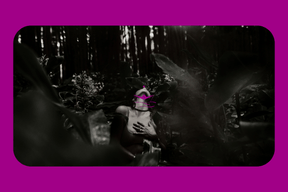"The Body Never Lies"
“When bodies couldn’t connect with moral commandments, bodies lived according to reality.”
This quote, from Alice Miller’s book *The Body Never Lies*, deeply resonated with me when I first read it because, as a child and adolescent, I couldn’t fully connect with moral and societal values, and my body manifested many symptoms in response. When we think about taboos in Turkey, sexuality often comes to mind, but I believe there are taboos that go far beyond that.
In this book, Miller addresses the subject of the “love that must be shown” toward parents. The greatest moral taboo we have is to show love and respect toward the family.
We are born into a society with certain thought patterns imposed upon us. Beyond that, there are global taboos that transcend cultures. As human beings, regardless of culture, we all share certain beliefs: we must be moral, we must show love and respect to our parents, and if there is a problem in the family, it must be because I acted too freely… and so on. Yet, during our childhood, we are often exposed to serious problems by the very caregivers who were supposed to protect us.
I once read a quote, “Parents, thank you. You made us who we are.” –Therapists
If we try to suppress all the feelings and emotions we’ve experienced and live according to moral values, the body rebels and begins to manifest certain reactions. We call this illness. Alice Miller frequently discusses this in her book, and Nihan Kaya also touches on this subject in her book *There Is No Such Thing as a Good Family*.
We are loved by our parents in the way they define love, but sometimes that definition doesn’t align with us. Especially the new generation, raised with “shoulds” and “musts,” is rarely motivated to find their own truth. And when we try to create our own truth, we may not receive the supportive love we seek.
We are the children of conditional love. We were not given much freedom to be ourselves. Before we were taught how to work toward self-acceptance, culture and morality imposed on us the notion that we must show respect and love to others. This has placed a heavy burden on our bodies because actions carried out without belief reflect themselves in our physical form.
For example, when you don’t want to be somewhere but feel you must attend due to “moral values,” yet your emotions are uncomfortable with it, this creates physical symptoms. Doing this repeatedly leads to chronic stress, chronic pain, and ongoing nausea.
Seeing that we don’t have to forgive anything—or that, in fact, there may be nothing to forgive—can bring freedom to both our heart and body. It’s important to remember that we have the freedom to create the life we want, with the people we want, in the places we want, and that we owe nothing to anyone.
Realizing this is not always easy. What do I truly want? What has been imposed on me by morality and social customs? Sometimes, finding answers can help us navigate this distinction.
The body is a powerful tool for connecting with our truth because the body speaks the truth. Any symptom in the body shows that, in that moment, we are not living our truth.
If it’s difficult to hear and understand the body’s language, we can give dance a chance. Dance is a space where emotions are included in movement. While dancing, we start to see emotions we haven’t been able to feel, things we haven’t made room for, and aspects we’ve been unable to express. Music accompanies us, movements create themselves, and a narrative begins. Sometimes we can’t analyze this narrative with our minds, but we know it’s our own story.
The mind stops believing it can understand everything.
Through the practice of dance, we learn to communicate, to connect, to give and receive, to listen to the body, and to transform emotions through movement. In doing so, we stop unconsciously lying and move closer to our truth.


